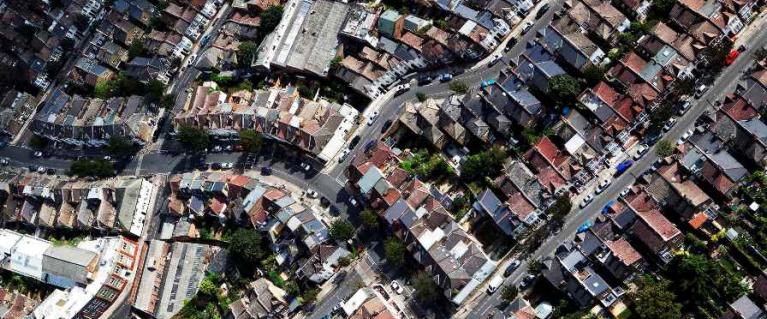
Tenant fees ban
For too long, Londoners have been forced to pay sky-high letting agent fees every time they move home, and even when they renew their tenancy agreements. From 1 June 2019, when the Tenant Fees Act comes into effect, it's illegal for a letting agent to charge you fees when you rent a new property, or renew your tenancy.
As part of the new legislation, deposits are also capped, reducing the amount that renters need to pay up front. This means London renters will save over £600 on average each time they move home. The Mayor campaigned alongside organisations such as Shelter and Citizens Advice to end these rip-off fees and reduce deposits for tenants. It’s part of the Mayor's commitment to make renting in London better and more affordable.
Here's what you need to know about the ban on tenant fees.
Which fees are now banned?
- All up-front letting agent fees: your landlord must pay for any costs involved with setting up a tenancy
This includes all administration fees, referencing, credit check and guarantor fees. It is illegal to charge tenants for these services. - Deposits higher than five weeks' rent
You cannot be charged more than this, unless your home is a luxury rental costing more than £50,000 a year (in which case your deposit is capped at six weeks' rent). - Holding deposits (to reserve a property) higher than one week's rent
In addition, your letting agent or landlord cannot make you pay for:
- an inventory check (though you may wish to pay for one if your landlord does not, so you have a record of the condition of the property at the start of the tenancy)
- a check-out fee at the end of your tenancy
- a professional clean at the end of your tenancy (though your landlord may ask that the property is cleaned to a professional standard)
Landlords or agent who charge illegal fees can be fined up to £5,000 for a first breach of the ban, and up to £30,000 for additional breaches.
What can I still be charged for?
You can still be charged for:
- the rent
- a refundable tenancy deposit capped at no more than five weeks’ rent
- a refundable holding deposit (to reserve a property) capped at no more than one week’s rent
In addition, your landlord or agent can charge you:
- a fee for late rent payments, if the rent is 14 or more days late, which interest can be charged on
- for the actual cost of replacing a lost key, evidenced by a written receipt
- payments to change the tenancy (for example a change of sharer in a joint tenancy or for keeping a pet at the property) capped at £50, or reasonable costs incurred if higher, evidenced by a written receipt
- payments for leaving a tenancy early, before the end of the fixed-term, when requested by the tenant. Landlords should only charge rent to cover any void period until a replacement tenant is found.
Generally, tenants are responsible for paying their own utility bills, broadband, phone, TV licence and council tax, unless these are included in the rent and set out in the tenancy agreement.
Report them to London Trading Standards, who are responsible for enforcing the tenant fees ban, using their simple online form.
If your landlord or agent refuses to return fees that have been charged illegally, Trading Standards and Citizens Advice can provide you with advice on getting your money back through the First-tier Tribunal.
Report them to London Trading Standards, who are responsible for enforcing the tenant fees ban, using their simple online form.
If you signed up to your tenancy before 31 May 2019, your landlord or agent can still charge fees that are set out in your tenancy agreement, such as check-out or renewal fees. They can only continue charging those fees until 31 May 2020.
For more information about what’s included in the fee ban, what you can still be charged for, and how to reclaim illegally-charged fees, read the Government’s guidance for tenants.
To find out about more about protecting yourself as private tenant, please check our advice for renters.
Need a document on this page in an accessible format?
If you use assistive technology (such as a screen reader) and need a version of a PDF or other document on this page in a more accessible format, please get in touch via our online form and tell us which format you need.
It will also help us if you tell us which assistive technology you use. We’ll consider your request and get back to you in 5 working days.